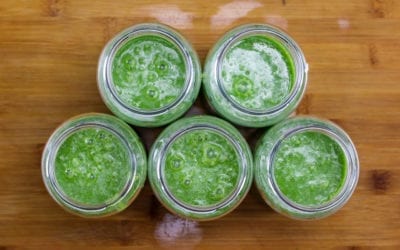Can you guess what the largest organ in your body is? It’s your skin! 5 carrot sticks for you if you got that right!
As a Registered Dietitian, I am frequently asked about what foods are best for weight loss, how much of “this or that” should be consumed, if I’ve ever heard of the latest diet trend, etc. With all of the questions that are commonly asked, it is unlikely for me to be asked about nutrition and skin health.
Studies have suggested that skin health is tied with a variety of nutrition factors such as vitamins/minerals as well as other components. It is true that beauty comes from within; but how can you show that inner beauty to the outside? There’s without a doubt that we all want to feel and look younger as we age. The purpose of this blog post is to gain a better understanding on skin health and nutrition.
Eat Your Veggies
“Don’t forget to eat your fruits and vegetables!” How many times have you heard this saying throughout the years? When we consume adequate amounts of nutrients from various sources of foods, we are able to successfully nourish ourselves while boosting our immunity. In a nutshell, your fruits and veggies come in handy. Thanks mom!
Foods such as carrots, mangos, papayas and sweet potatoes are a couple of examples of how beta-carotene (a highly effective antioxidant) provides skin photoprotection. Skin photoprotection is a mechanism that allows specific organisms to cope with damage that has occurred from the sun. Overall, Beta-Carotene is a powerful and well known member of the group of carotenoids for its role in provitamin A activity. What’s even more promising is that B-carotene along with Lycopene (a bright red carotene phytochemical found in tomatoes) protects the skin against sunburns by combating against UV light-mediated damage.1 Remember: the best way to consume your nutrients is through food and not supplementation.
Vitamin D
It’s time to give some credit to Vitamin D! Vitamin D is a prohormone and is synthesized in the human body from sun exposure. Smaller amounts of active Vitamin D are found in foods such as fish (salmon, tuna, and mackerel), egg yolk and other animal-based foods that have been fortified. Vitamin D3- 1,25(OH)2D3 (active vitamin D) has many powerful characteristics on the body, such as bone integrity, producing other hormones, and fighting off inflammation. It can also prevent opportunistic infections as well as protect against skin damage. 2
Furthermore, studies have suggested that adequate amounts of Vitamin D consumed orally showed potent effects for skin cancer prevention. According to the US Institute of Medicine, the recommendations for Vitamin D intake in adults are, 600 IU/day for ages 1-70 yr and 800 IU/day for ages 71 and older with a blood level of 25-hydroxyvitamin D of at least 20 ng/ml. These requirements meet the RDA aka recommended dietary allowance ( meeting requirements of at least 97.5% of the population).3 According to the NIH (National Institutes of Health), adults between the ages of 18-70 years are recommended to consume 15 micrograms of vitamin D per day.
When it comes to maintaining skin integrity and preventing further damage to the skin, it is important to understand the role of nutrition. Certain components such as polyphenols which are found in your teas, coffees, fruits and veggies contain antioxidant properties which assist in the prevention of further degradation. Overall, food intake from natural sources are said to be the safest and healthiest method to obtain youthful skin.
- Stahl W, Heinrich U, Aust O. Tronnier H, Sies H. Lycopene-rich products and dietary photoprotection. Photochem Photobiol Sci. 2006;5:238-42. Doi: 10.1039/b505312a.
- Weber G, Heilborn JD, Chamorro Jimenez Cl, Hammarsjo A, Torma H, Stahle M. Vitamin D induces the antimicrobial protein hCAP18 in human skin. J Invest Dermatol. 2005;124: 1080-2. Doi: 10.1111/j.0022-202X.2005.23687.x.
- Ross, AC, Mason JE, Abrams SA, Aloia JF, Brannon PM, Clinton SK, Durazo-Arvizu RA, Gallagher JC, Gallo RL, Jones G, Kovacs CS, Mayne ST, Rosen CJ, Shapses SA. The 2011 report on dietary reference intakes for calcium and vitamin D from the Institute of Medicine: what clinicians need to know. J Clin Endocrinol Metab. 2011 Jan;96(1):53-8. doiL 10.1210/jc.2010-2704. Epub 2010 Nov 29.




0 Comments